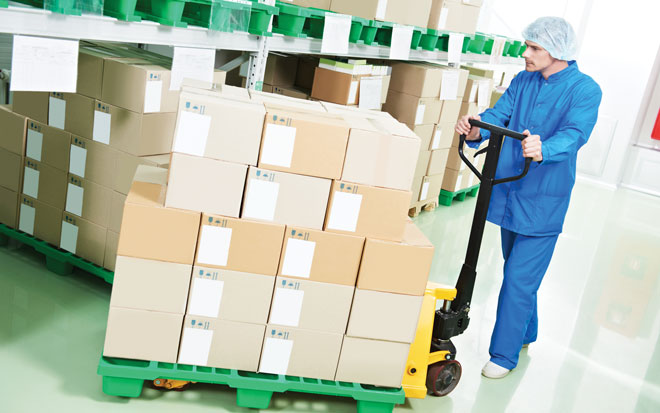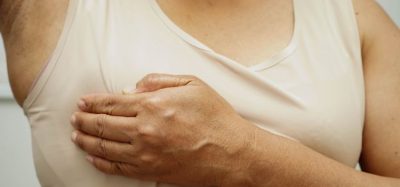CEIV Pharma: Industry cooperation that is taking off
Posted: 4 May 2016 | | No comments yet
Several air transport industry stakeholders and regulators have joined forces to create the Center of Excellence for Independent Validators in Pharmaceutical Logistics (CEIV Pharma) programme. This joint effort aims to effectively help reverse the current lack of standardisation, compliance and transparency currently afflicting the pharmaceutical air transport supply chain, via mutual cooperation, honest sharing of data and a strong emphasis on accountability.


In order to fill this industry gap, several air transport industry stakeholders and regulators have joined forces to create the Center of Excellence for Independent Validators in Pharmaceutical Logistics (CEIV Pharma) programme. This joint effort aims to effectively help reverse the current lack of standardisation, compliance and transparency currently afflicting the pharmaceutical air transport supply chain, via mutual cooperation, honest sharing of data and a strong emphasis on accountability.
An industry need for standardisation
The media cites that the pharmaceutical cold chain logistics industry will surpass the US$10 billion mark in 2018. Traditionally, this industry has relied heavily on air transport due to its speed and efficiency. However, over the past decade air cargo’s share of the overall global pharmaceutical product transport has been continuously declining. The use of air transportation has been reconsidered due to the level of annual product losses in air transport (up to US$12.5 billion) and the concurrent trend towards improved reliability in ocean freight.
In an effort to reduce overall levels of pharmaceutical mishandling, a growing number of countries are issuing their own cold chain regulations and guidance based around the non-air-cargo-specific good distribution practices (GDP). Although the focus on higher standards is a welcome initiative, the result has been the creation of a heavily regulated (and very difficult to manage) industry without global standards or universal certification for the handling and transportation of pharmaceutical products.
Nevertheless, this lack of standardisation has not stopped the drive towards using cold chain air transportation for the distribution of pharmaceutical products. In their quest to satisfy the growing pharmaceutical product demand, particularly in ‘pharmerging’ countries (countries with US$ 1 billion in incremental sales in the past five years), shippers are turning towards the air industry’s benefits of speed and global reach. As such, there is a growing business opportunity for air cargo. Air carriers, handlers and freight forwarders have responded in turn with the creation of ‘pharma-regulated’ branded products and services to grab a share of this lucrative niche market. These are typically cold chain management solutions that follow one out of the many pharmaceutical storage (but not air transport-focused) standards and regulations currently available. However, the current challenges of considerable annual product losses and regulatory complexity remain, both being key issues that the air industry is seeking an answer for.
The solution
CEIV Pharma was launched in 2014 by the International Air Transport Association (IATA) to address the following critical cool chain air industry issues:
- Decreasing levels of competency;
- Deteriorating levels of technical and operational preparedness;
- Lack of global standardisation covering both international standards and country-specific requirements.
CEIV Pharma addresses these issues by promoting and developing an industry- and regulator-backed training and validation certification programme that ensures a reliable pharmaceutical air transport cold chain worldwide.
In addition to delivering a single, internationally recognised standard, the CEIV Pharma programme harmonises and simplifies the number of audits, thus generating multiple benefits at various industry levels.
- On the individual scale, CEIV Pharma helps companies properly train their personnel, develop adequately equipped facilities and attain compliance with globally-recognised standards. Companies also benefit from a simplified (or reduced) number of pharmaceutical company audits given CEIV Pharma’s marketable common audit format, which minimises disruption of operations and increases an entity’s probabilities to effectively meet the ever growing number of governmental regulations.
- On the global scale, the CEIV Pharma programme ensures that the industry as a whole meets all applicable regulations and standards, thus protecting the end users of the various pharmaceutical goods shipped by air, for whom swift and unaltered access to vaccines and medications could be a matter of life or death.
As a result of its global standardisation approach, CEIV Pharma encompasses, or even supersedes, many of the existing pharmaceutical standards and guidelines such as:
- IATA temperature control regulations;
- EU GDP;
- World Health Organization Annex 5;
- US Pharmacopeia Standards.
The general goal is not only to elevate the industry know-how, but also to identify and recognise the best pharmaceutical handlers who are ensuring vital product quality benefits by actively reducing the number of temperature excursions which can render pharmaceutical products unusable to end recipients. In the end, all organisations that achieve CEIV certification will establish trust and confidence that their facilities, systems and qualified people are in place to handle and transport valuable time- and temperature-sensitive pharmaceutical goods appropriately.
Gaining momentum
The CEIV Pharma certification programme is already proving to be very successful. Participating companies are seeing the benefits of the industry-wide acceptance generated. There are currently 17 certified companies, but a total of 40 locations will be undergoing the assessment stage by the first half of 2016, with approximately 15 of those expected to successfully meet certification requirements by April 2016.
Furthermore, based on the successful 11-company community approach to establish a CEIV Pharma certified gateway at Brussels Airport in December of last year, three additional airport communities (Miami, Madrid and Barcelona) have recently launched their own joint efforts to improve, align and standardise their pharmaceutical handling processes. These are the first gateways in an ever growing far-reaching network of independently assessed, industry compliant companies and trade lanes. Figure 1 (page 00) shows where CEIV Pharma certifications are currently taking place.
Getting on-board
What does an airport need to do to improve its handling of pharmaceutical products? The CEIV certification process varies from one organisation to another. It can encompass basic upgrading of facilities (such as the refrigerated zones) or perhaps the enhancement of ground handling equipment to ensure the proper handling for both acceptance and delivery of pharmaceutical shipments. However, it can also entail the complete overhaul of processes including staff training.
As an entity, the airport itself does not become certified unless it owns and operates its own pharmaceutical facilities. Rather, an airport achieves ‘CEIV Pharma Gateway’ designation once a minimum amount of pharmaceutical handling companies operating within its premises commit to and achieve CEIV Pharma certification. All stakeholders committed to quality handling of pharmaceuticals can participate in the rigorous CEIV Pharma training and certification programme: airlines, airports, freight forwarders, ground handlers, trucking companies, etc.
The process begins with an assessment of an entity’s cool chain/pharmaceutical processes and facilities against international standards, guidelines and regulations which are pragmatically summarised within IATA’s comprehensive CEIV Pharma Audit Checklist. The result of the assessment is a gap analysis report encompassing findings and recommendations from our independent validators. The gap analysis assists those being certified with the identification of the critical elements currently in non-compliance with national and international regulations and criteria. The assessment also supports them in the determination of an implementation plan necessary to close the gaps and meet all of the programmes’s requirements.
The required training consists of two multiple-day courses that cover a variety of topics regarding temperature controlled cargo operations as well as the audit, quality and risk management of temperature controlled cargo.
The final stage of certification – the validation phase – ensures all requirements established during the assessment phase are in compliance and that all the gaps and recommendations have been implemented. During the validation IATA’s independent validators go through the checklist a final time in order to decide whether all requirements have been fulfilled and an entity can be ‘CEIV Pharma Certified’.
However, it does not end there; a recertification will take place every three years and will include an assessment and one refresher training plus a validation, if necessary. This will ensure the companies maintain their high standard of transporting pharmaceutical products and that they adjust to new best practices consistently for years to come.
As the momentum within the industry continues, CEIV Pharma will continue to evolve in order to fully address the industry’s need for more safety, security, compliancy and efficiency and create a globally consistent and recognised pharmaceutical product handling certification. By promoting supply chain partner collaboration on pharmaceutical handling standards, the programme will warrant seamless integration of pharmaceutical cargo movement throughout the whole process. Through ensuring open communication, trust will be built regarding product integrity based on the guarantee that temperature–sensitive pharmaceuticals will be consistently managed in the same way every time. Once that trust is built, the industry as a whole will be able to move forward.
Biographies
Ricardo Aitken is Airport Project Manager at IATA Consulting. He is responsible for projects in the areas of air cargo business planning and infrastructure development; air cargo operations and logistics and master planning. Before joining IATA, Ricardo worked at Lufthansa Consulting, a world-class German aviation and management consulting firm, as a consultant for diverse projects across the globe. Mr. Aitken has worked on-site for projects in Brazil, Djibouti, Ecuador, Germany, Kazakhstan, Luxembourg, Rwanda and Trinidad. Mr. Aitken has four engineering degrees.
Michal Wielgus, who works in marketing at IATA Consulting, is a communications specialist. He has over a decade of experience in building communications and marketing strategies for both corporate and non-profit organisations. Passionate and dedicated, Michal provides clients with innovative and results-driven campaigns. During the course of his career he has worked with internationally renowned companies such as IATA, CAE, Evenko, Cirque du Soleil, United Way, the UFC and the Canadian Football League, amongst others.
Issue
Related topics
Cold Chain Supply, Drug Supply Chain, Regulation & Legislation, Supply Chain









